By: Elise Miller-Hooks, George Mason University; Sara Cobb, George Mason University; Celso Ferreira, George Mason University; Anne Garland, ARIES; Ralph Pundt, Maine Maritime Academy; Thomas Ravens, Consultant; and Jinlun Zhang, University of Washington
A changing climate has brought a thawing of the Arctic Ocean with increasingly viable passageways. This opening of the Arctic routes over coming years is likely to lead to a shift in the flow of cargo across world seaborne trade lanes. Our project, "NNA Track 1: Arctic impacts and reverberations of expanding global maritime trade routes," funded by the US National Science Foundation, is developing the science to make high-fidelity and high-resolution, but long-term, future forecasts of conditions along these passageways including: waves, storm surge, extreme cold, wind, visibility, risk of icing to vessels, as well as sea-ice conditions, including ice concentration, ice thickness and fractions of thin and thick ice. With these predictions we can estimate route characteristics, such as voyage duration and risk of accident for cargo vessels, characterize route shortcomings, and predict vessel flows both globally and through the region. Estimates of coastal permafrost thaw simultaneously can support the teams' work in understanding how to construct or maintain port infrastructure on a thawing permafrost foundation.
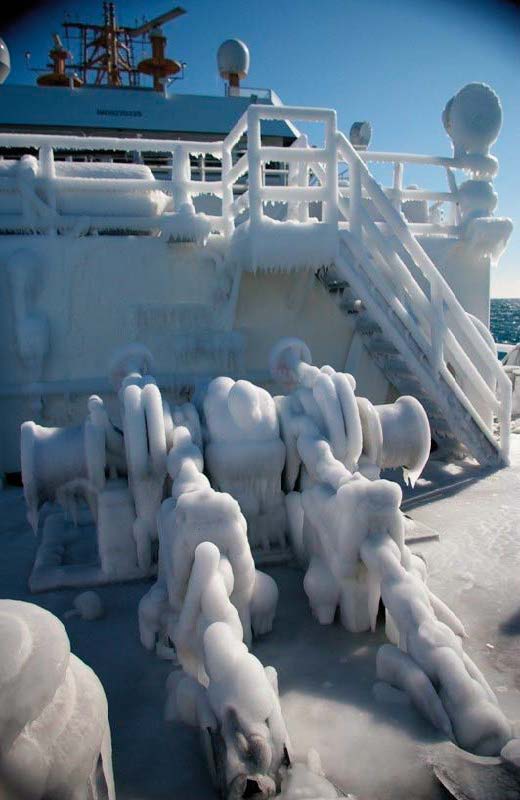
For this purpose, we have developed a mathematical (network) representation of the global maritime system of ports and passageways, and decision support tools that incorporate both container and bulk shipping to estimate real-world maritime traffic flows and study traffic patterns at the global scale. Containerized and bulk cargo movements are jointly modelled within an optimization framework. We implement an iterative algorithmic procedure that exploits techniques for solving large-scale problems in calibrating and solving the developed model as applied to the global cargo shipping network representation. The network contains more than 160 seaports covering 52 countries. Painstakingly created from updatable, publicly available, data sources, it an important resource for other maritime researchers.. The calibrated solution achieved a 91% fit overall by average annual port throughput for test year 2018. With this level of accuracy in replicating real-world seaborne trade flows, we can be assured that our risk-based prediction models will provide reasonable future forecasts of vessel traffic flows through the Arctic and changes to global maritime flow patterns with future ice, surge, waves, and meteorological estimates.
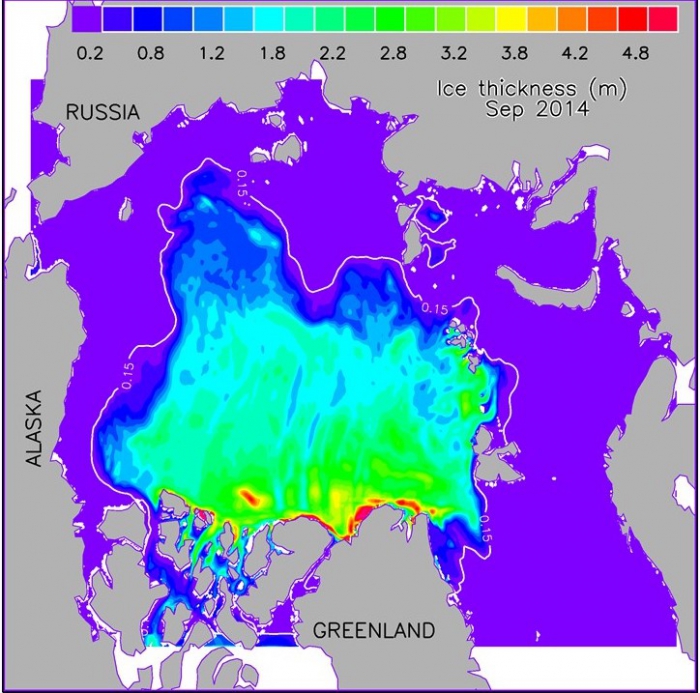
Increased vessels through the Arctic passageways, increasing surges, permafrost thaw, and erosion of the coasts have important implications for natural and social ecosystems of the Arctic region, especially community infrastructure and ecosystem services. The maritime traffic can increase opportunities for jobs, ports, resource distribution, and tourism. Such economic benefits come at significant costs associated with such issues as providing assistance when vessels are in trouble, increases in pollution affecting harmful algal toxins, and other impacts to residents and Indigenous cultures with limited medical, food, housing, and water resources. Using a participatory action research methodology and hazards science approach, we are working with several coastal Arctic communities and their emergency management organizations to conduct risk assessments and gain deeper understanding into these risks.
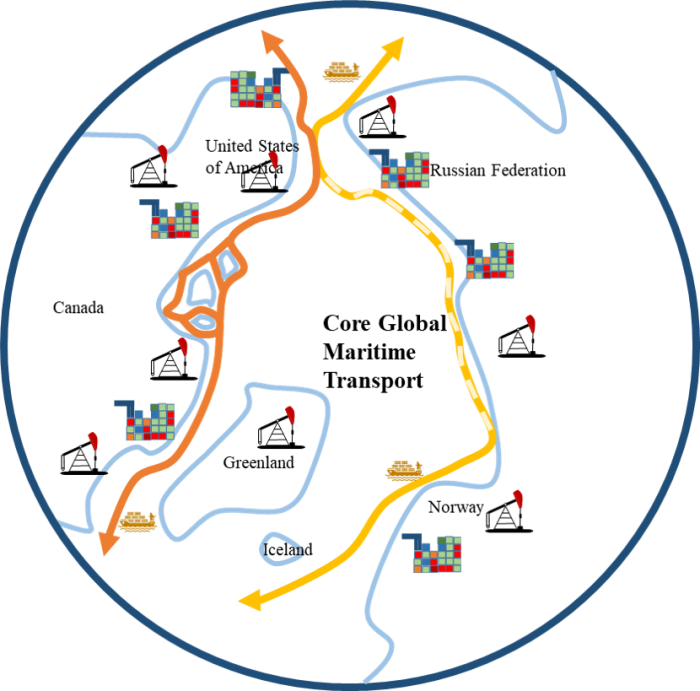
A shift to routes that employ the Arctic passageways will mean a shift away from other routes around the globe, changing business for port-related services and local economies. Consequently, the sourcing of raw materials needed for production and manufacturing of goods may move, affecting global supply chains and economies. With change comes potential for conflict. To aid in mitigating the impact of conflict, we are also working on the development of a conflict early warning system for the Arctic region using fracture social networks. Our approach compares a stakeholder's narrative landscape with policy narratives. Through our developed Arctic Risk Management Network, we are identifying associational ties, adaptations, and mitigation strategies to aid in reducing conflict and risks.
Through these developments, we will be able to predict future conditions of the Arctic passageways, as well as the potential for changing global seaborne trade flows that result with its many consequences. For more information, see Arctic Expansion Reverberations.
Acknowledgements
We are grateful to the US National Science Foundation's Navigating the New Arctic program for its support of our work and the many good people of Utqiaġvik, Alaska who have participated with us.
About the Authors
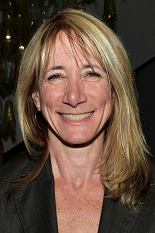 Elise Miller-Hooks, Professor, holds the Bill and Eleanor Hazel Endowed Chair in Infrastructure Engineering at George Mason University, is an advisor to the World Bank Group and the founding Editor-in-Chief of Elsevier’s Sustainability Analytics and Modeling journal. Previously, Dr. Miller-Hooks served as Program Director of the U.S. National Science Foundation (NSF) and on the faculties of the University of Maryland, Pennsylvania State University and Duke University. Her expertise includes: disaster planning and response; multi-hazard civil infrastructure resilience quantification and infrastructure protection investment; mathematical modeling and optimization; transportation systems engineering; intermodal passenger and freight transport; workforce deployment; sustainable transportation; and collaborative and multi-objective decision-making.
Elise Miller-Hooks, Professor, holds the Bill and Eleanor Hazel Endowed Chair in Infrastructure Engineering at George Mason University, is an advisor to the World Bank Group and the founding Editor-in-Chief of Elsevier’s Sustainability Analytics and Modeling journal. Previously, Dr. Miller-Hooks served as Program Director of the U.S. National Science Foundation (NSF) and on the faculties of the University of Maryland, Pennsylvania State University and Duke University. Her expertise includes: disaster planning and response; multi-hazard civil infrastructure resilience quantification and infrastructure protection investment; mathematical modeling and optimization; transportation systems engineering; intermodal passenger and freight transport; workforce deployment; sustainable transportation; and collaborative and multi-objective decision-making.
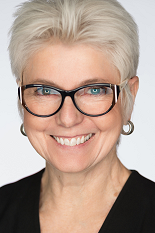 Sara Cobb has a Ph.D. in Communication (UMASS Amherst) and is the Drucie French Cumbie Chair at the Carter School for Peace and Conflict Resolution at George Mason University, where she was, from 2001–2009, the Dean/Director. In her current role as faculty, she teaches and conducts research on the relationship between narrative and conflict. She is also the Director of the Center for the Study of Narrative and Conflict Resolution at the Carter School for Peace and Conflict Resolution, which provides a hub for scholarship on narrative approaches to conflict analysis and resolution. She is co-editor of the journal, Narrative and Conflict: Explorations in Theory and Practice.
Sara Cobb has a Ph.D. in Communication (UMASS Amherst) and is the Drucie French Cumbie Chair at the Carter School for Peace and Conflict Resolution at George Mason University, where she was, from 2001–2009, the Dean/Director. In her current role as faculty, she teaches and conducts research on the relationship between narrative and conflict. She is also the Director of the Center for the Study of Narrative and Conflict Resolution at the Carter School for Peace and Conflict Resolution, which provides a hub for scholarship on narrative approaches to conflict analysis and resolution. She is co-editor of the journal, Narrative and Conflict: Explorations in Theory and Practice.
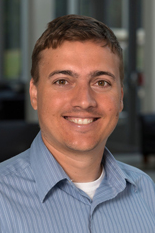 Celso Ferreira is an Associate Professor in the Civil, Infrastructure and Environmental Engineering Department at George Mason University and leads the Mason Flood Hazards Research Lab. Dr. Ferreira holds a PhD from Texas A&M University in Civil Engineering specializing in water resources and coastal engineering and is a registered Professional Engineer in the State of Maryland. His current research interests are associated with water related extreme weather hazards and their impacts on civil engineering infrastructure and societies. His work is focused on flood hazards from coastal, riverine, and urban environments and includes real time flood forecasting, monitoring storm surges, and supporting incorporation of natural systems into coastal flood defenses.
Celso Ferreira is an Associate Professor in the Civil, Infrastructure and Environmental Engineering Department at George Mason University and leads the Mason Flood Hazards Research Lab. Dr. Ferreira holds a PhD from Texas A&M University in Civil Engineering specializing in water resources and coastal engineering and is a registered Professional Engineer in the State of Maryland. His current research interests are associated with water related extreme weather hazards and their impacts on civil engineering infrastructure and societies. His work is focused on flood hazards from coastal, riverine, and urban environments and includes real time flood forecasting, monitoring storm surges, and supporting incorporation of natural systems into coastal flood defenses.
 Tom Ravens is a Professor in the Civil Engineering Department at UAA, and former Associate Dean of Research for the College of Engineering. Currently, Tom's research focuses on Arctic coastal hazards and risks including coastal erosion, flooding, permafrost thaw, and saltwater intrusion, as well as hydrokinetic renewable energy. Tom is PI of the Arctic Coastal Risk Network (ACRN), which is an NSF-funded Research Coordination Network (arcticcoastalrisk.net). The Network is a collaborative community of coastal researchers and practitioners from the natural and social sciences, which develops techniques to define, communicate, and mitigate Arctic coastal hazards and risks.
Tom Ravens is a Professor in the Civil Engineering Department at UAA, and former Associate Dean of Research for the College of Engineering. Currently, Tom's research focuses on Arctic coastal hazards and risks including coastal erosion, flooding, permafrost thaw, and saltwater intrusion, as well as hydrokinetic renewable energy. Tom is PI of the Arctic Coastal Risk Network (ACRN), which is an NSF-funded Research Coordination Network (arcticcoastalrisk.net). The Network is a collaborative community of coastal researchers and practitioners from the natural and social sciences, which develops techniques to define, communicate, and mitigate Arctic coastal hazards and risks.
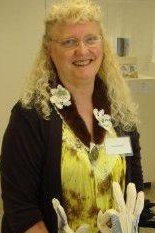 Anne Garland is a Project Director at the Applied Research in Environmental Sciences (ARIES). She received her PhD at the University of Hawaii, Manoa, in Archaeology and Anthropology. From 2006 to 2016, she served as assistant principal investigator for the Working Together for a Safer Tomorrow DHS-funded program among Tribal Inclusive Areas to assist them with risk assessments and reduction strategies. Since 2007, she has worked with North Slope Borough Risk and Emergency Management to assist with risk reduction research and community risk education through funding by Homeland Security, Alaska Sea Grant, Gulf Research Program, and National Science Foundation. She has taught as Adjunct Faculty at Elizabeth City University in Environmental Science, Sociology or Geology and at the University of Maryland in Archaeology and Emergency Management. Her interests include applying historical, natural, and social science research to assist community-based decision making in the areas of Historical Ecology, Public Archaeology, Culture Contact Studies, and Applied Anthropology for Disaster Preparedness.
Anne Garland is a Project Director at the Applied Research in Environmental Sciences (ARIES). She received her PhD at the University of Hawaii, Manoa, in Archaeology and Anthropology. From 2006 to 2016, she served as assistant principal investigator for the Working Together for a Safer Tomorrow DHS-funded program among Tribal Inclusive Areas to assist them with risk assessments and reduction strategies. Since 2007, she has worked with North Slope Borough Risk and Emergency Management to assist with risk reduction research and community risk education through funding by Homeland Security, Alaska Sea Grant, Gulf Research Program, and National Science Foundation. She has taught as Adjunct Faculty at Elizabeth City University in Environmental Science, Sociology or Geology and at the University of Maryland in Archaeology and Emergency Management. Her interests include applying historical, natural, and social science research to assist community-based decision making in the areas of Historical Ecology, Public Archaeology, Culture Contact Studies, and Applied Anthropology for Disaster Preparedness.
 Jinlun Zhang is interested in quantifying and understanding climate change in the Polar Regions. He investigates the properties of polar ice-ocean systems by developing large-scale sea ice and ocean models such as the Pan-arctic Ice-Ocean Modeling and Assimilation System (PIOMAS), the Global Ice-Ocean Modeling and Assimilation System (GIOMAS), and the Marginal Ice Zone Modeling and Assimilation System (MIZMAS). He also studies the impact of changes in sea ice on marine planktonic ecosystems by developing biophysical models such as the coupled Biology-Ice-Ocean Modeling and Assimilation System (BIOMAS). He has developed efficient sea-ice dynamics models that are particularly useful for stable, high-resolution modeling. He is interested in developing next-generation sea-ice models, which capture anisotropic nature of ice dynamics/mechanics and explicitly simulate both ice thickness distribution and floe size distribution, jointly. His research results have been published in the Journal of Physical Oceanography, the Journal of Geophysical Research, the Journal of Climate, Monthly Weather Review, Geophysical Research Letters, Ocean Modeling, Deep Sea Research, and other scientific journals.
Jinlun Zhang is interested in quantifying and understanding climate change in the Polar Regions. He investigates the properties of polar ice-ocean systems by developing large-scale sea ice and ocean models such as the Pan-arctic Ice-Ocean Modeling and Assimilation System (PIOMAS), the Global Ice-Ocean Modeling and Assimilation System (GIOMAS), and the Marginal Ice Zone Modeling and Assimilation System (MIZMAS). He also studies the impact of changes in sea ice on marine planktonic ecosystems by developing biophysical models such as the coupled Biology-Ice-Ocean Modeling and Assimilation System (BIOMAS). He has developed efficient sea-ice dynamics models that are particularly useful for stable, high-resolution modeling. He is interested in developing next-generation sea-ice models, which capture anisotropic nature of ice dynamics/mechanics and explicitly simulate both ice thickness distribution and floe size distribution, jointly. His research results have been published in the Journal of Physical Oceanography, the Journal of Geophysical Research, the Journal of Climate, Monthly Weather Review, Geophysical Research Letters, Ocean Modeling, Deep Sea Research, and other scientific journals.
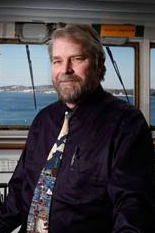 Captain Ralph H. Pundt is a full professor in the Marine Transportation Operations Department at the Maine Maritime Academy. He earned a Bachelor of Science degree from MMA in 1977 and throughout his career has sailed on tankers, bulk carriers, RORO, and break bulk ships. He retired from his seagoing career as captain in 1998 and has been teaching at MMA since 1999, and maintains an unlimited USCG Master's license. He remains active in the maritime field and co-founded International Maritime Security Network, LLC (IMSN LLC), a maritime security and security training company. Using his experiences gained from a unique and successful sailing career, which often included Polar water operations in the Arctic as well as the Antarctic, he has worked with the University of Alaska Anchorage through a Department of Homeland Security grant to develop specialized training for mariners and first responders operating in Polar waters. Captain Pundt's passion for the sea was fostered on his first transatlantic voyage on an iron ore carrier from St. Johns, Newfoundland to Rotterdam at the age of five.
Captain Ralph H. Pundt is a full professor in the Marine Transportation Operations Department at the Maine Maritime Academy. He earned a Bachelor of Science degree from MMA in 1977 and throughout his career has sailed on tankers, bulk carriers, RORO, and break bulk ships. He retired from his seagoing career as captain in 1998 and has been teaching at MMA since 1999, and maintains an unlimited USCG Master's license. He remains active in the maritime field and co-founded International Maritime Security Network, LLC (IMSN LLC), a maritime security and security training company. Using his experiences gained from a unique and successful sailing career, which often included Polar water operations in the Arctic as well as the Antarctic, he has worked with the University of Alaska Anchorage through a Department of Homeland Security grant to develop specialized training for mariners and first responders operating in Polar waters. Captain Pundt's passion for the sea was fostered on his first transatlantic voyage on an iron ore carrier from St. Johns, Newfoundland to Rotterdam at the age of five.
